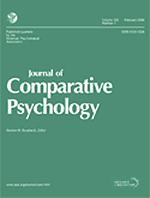
JOURNAL OF COMPARATIVE PSYCHOLOGY
Scope & Guideline
Championing Rigorous Research in Behavioral Science
Introduction
Aims and Scopes
- Comparative Cognition:
The journal emphasizes research on cognitive processes across various species, exploring how different animals solve problems, make decisions, and exhibit learning behaviors. - Behavioral Ecology:
Studies often investigate how behavior is influenced by ecological factors, including foraging strategies, social interactions, and environmental challenges faced by different species. - Social Behavior and Communication:
A significant focus is placed on understanding social dynamics and communication methods among animals, including nonverbal cues and vocalizations. - Developmental and Evolutionary Psychology:
Research often delves into developmental aspects of behavior and cognition, considering how evolutionary history shapes psychological traits in different species. - Methodological Diversity:
The journal promotes various research methodologies, including experimental, observational, and cross-species comparative approaches, fostering a rich understanding of psychological phenomena.
Trending and Emerging
- Intertemporal Decision Making:
Recent studies on intertemporal choice, particularly in birds and primates, indicate a growing interest in understanding how different species evaluate rewards over time, contributing to our knowledge of decision-making processes. - Cognitive Flexibility and Impulsivity:
There is an increasing focus on cognitive flexibility and impulsivity across various species, shedding light on how these traits influence behavior and social interactions. - Social Learning and Cooperation:
Emerging research emphasizes the importance of social learning and cooperative behaviors, particularly in primates and social mammals, highlighting the role of social dynamics in cognitive development. - Comparative Emotional and Affective States:
Studies exploring emotional responses and affective states in animals are gaining traction, suggesting a deeper inquiry into the emotional lives of nonhuman species. - Anthropomorphism and Human-Animal Interaction:
There has been a rise in research examining human perceptions of animal behavior and the implications of anthropomorphism, reflecting societal interests in human-animal relationships.
Declining or Waning
- Traditional Behavioral Assays:
There has been a noticeable decline in papers relying on standard behavioral assays, possibly due to a shift towards more innovative and ecologically valid methodologies that better reflect natural behaviors. - Focus on Invertebrates:
Research involving invertebrate species has diminished, suggesting a trend towards more studies on vertebrates, particularly mammals and birds, which may reflect a broader interest in cognitive complexity. - Laboratory-Based Studies:
The preference for controlled laboratory settings appears to be waning, with increasing emphasis on field studies that capture more naturalistic behaviors and interactions.
Similar Journals

Journal of Theoretical Social Psychology
Innovating Insights into Human BehaviorThe Journal of Theoretical Social Psychology, published by WILEY-HINDAWI, stands as a pivotal resource in the field of social psychology, boasting an impressive Q2 ranking in the 2023 Social Psychology category. Launched in 2017, this journal has rapidly established itself as a platform for innovative research that bridges theoretical frameworks and empirical studies, advancing our understanding of social behavior and cognition. With a current Scopus rank of 135 out of 310, placing it in the 56th percentile, it is recognized for its significant contributions to the discipline. The Journal is committed to open access, ensuring that critical insights and findings are accessible to a global audience of researchers, professionals, and students. As it converges towards its future in 2024, the journal aims to further its mission of fostering scholarly dialogue and promoting groundbreaking research in social psychology.
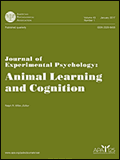
JOURNAL OF EXPERIMENTAL PSYCHOLOGY-ANIMAL LEARNING AND COGNITION
Innovating Research in Animal Learning and CognitionJOURNAL OF EXPERIMENTAL PSYCHOLOGY-ANIMAL LEARNING AND COGNITION, published by the American Psychological Association, stands as a pivotal resource in the fields of animal learning and cognitive psychology. With an ISSN of 2329-8456 and an E-ISSN of 2329-8464, this journal has established its significance from its inception in 2014, demonstrating a robust commitment to advancing research through 2024 and beyond. The journal's prominence is reflected in its 2023 rankings, placing it in the Q2 quartile for both Ecology, Evolution, Behavior and Systematics and Experimental and Cognitive Psychology, which positions it among the leading publications in its domains. Researchers and professionals engaged in the intricate study of animal behavior, cognition, and their underlying psychological mechanisms will find this journal invaluable. Although it does not currently offer open access, the quality and rigor of the published research make it a key reference for advancing knowledge and understanding in psychology and beyond.
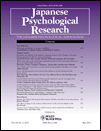
JAPANESE PSYCHOLOGICAL RESEARCH
Exploring the Depths of Japanese PsychologyJapanese Psychological Research, published by Wiley, is a distinguished journal dedicated to advancing knowledge within the field of psychology, offering a platform for original research that reflects the diverse psychological landscape of Japan and its global relevance. Since its inception in 1954, this journal has served as a valuable resource for researchers, professionals, and students alike, encouraging the dissemination of innovative theoretical and empirical findings. With an Impact Factor that places it in the Q3 category in Psychology (Miscellaneous) and achieving a rank of #125 out of 216 in general psychology according to Scopus, it is recognized for its contribution to the scholarly community. Although it does not currently offer Open Access options, the journal's rich archive from 1954 to present ensures a comprehensive collection of psychological studies. Engage with Japanese Psychological Research to explore insights into behavioral science, cognitive processes, and cultural influences on psychological practices, making it an essential read for those committed to understanding the multifaceted world of psychology.
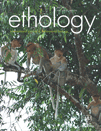
ETHOLOGY
Connecting Research and Wildlife BehaviorETHOLOGY, published by WILEY, is a prestigious journal that has been at the forefront of animal behavior research since its inception in 1986. With an ISSN of 0179-1613 and E-ISSN 1439-0310, this journal holds a significant position, categorized in the Q1 quartile for Animal Science and Zoology and Q2 for Ecology, Evolution, Behavior, and Systematics as of 2023. Recognized for its rigorous peer-review process and comprehensive scope, ETHOLOGY publishes cutting-edge research that illuminates the complexities of animal behavior, making it an invaluable resource for researchers, professionals, and students alike. With an impact factor that underlines its relevance in the field, the journal's commitment to advancing knowledge in ethology is evident through its extensive citation and ranking metrics, including a commendable position in Scopus for both Animal Science and Zoology as well as Ecology. Though it does not offer open access, the journal remains a pivotal platform for the dissemination of innovative studies that contribute to our understanding of wildlife and their ecosystems.
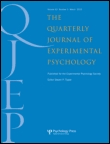
QUARTERLY JOURNAL OF EXPERIMENTAL PSYCHOLOGY
Exploring the Depths of Human CognitionQuarterly Journal of Experimental Psychology, published by SAGE Publications Ltd, is a leading peer-reviewed journal that serves as a vital resource in the fields of experimental and cognitive psychology, neuropsychology, and medicine. With an impactful contribution to psychological research, the journal is recognized for its rigorous methodology and empirical studies, holding a notable ranking among its peers—finding itself in the Q2 quartile across several categories. With its origin tracing back to 2006, Quarterly Journal of Experimental Psychology significantly influences the academic discourse until its latest published findings in 2024. Catering to a diverse audience of researchers, professionals, and students, this journal provides Open Access options, enhancing the reach and accessibility of cutting-edge psychological research. By focusing on innovative approaches and findings, it aims to bridge theoretical understanding with practical application, hence fostering advancement in multiple related disciplines. For those committed to understanding the complexities of human behavior and cognitive processes, this journal remains an essential reference point.

Evolutionary Psychology
Unraveling Psychology Through Evolutionary InsightsEvolutionary Psychology is a crucial journal published by SAGE Publications Inc, dedicated to exploring the intersection of psychological sciences and evolutionary theory. Established as an Open Access platform since 2003, this journal aims to facilitate the dissemination of groundbreaking research that examines how evolutionary processes shape human behavior and cognitive functions. With a range of articles that cater to various aspects of psychology, especially in fields such as Behavioral Neuroscience, Social Psychology, and general Medicine, the journal holds significant relevance in contemporary academic discourse. Although it currently resides in the lower quartiles (Q4 and Q3) in its respective categories, it provides a vital space for innovative ideas and perspectives, inviting researchers and students to contribute and engage with the rapidly evolving understanding of human psychology through an evolutionary lens. The journal is indexed with an ISSN of 1474-7049, ensuring broad accessibility and outreach to a global audience.

ACTA ETHOLOGICA
Advancing the Frontiers of Animal Behavior and EcologyACTA ETHOLOGICA, published by Springer Heidelberg, is a leading journal in the fields of Animal Science and Zoology, as well as Ecology, Evolution, Behavior, and Systematics. With an ISSN of 0873-9749 and an E-ISSN of 1437-9546, this journal has established itself as a notable platform for innovative research and review articles since its inception in 1998. As of 2023, it holds a Category Quartile of Q3 in both its primary categories, showcasing its commitment to advancing knowledge within these scientific domains. The journal aims to facilitate the dissemination of cutting-edge research on animal behavior and ecology, fostering collaboration among researchers, professionals, and students. While it does not currently offer Open Access options, ACTA ETHOLOGICA remains crucial for those looking to stay informed about the latest developments and trends in ethology. For inquiries, the journal's editorial office is located at Tiergartenstraße 17, D-69121 Heidelberg, Germany.
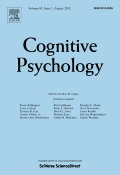
COGNITIVE PSYCHOLOGY
Advancing Insights in Cognitive ScienceCOGNITIVE PSYCHOLOGY is a premier academic journal published by Academic Press Inc. Elsevier Science, specializing in the dynamic and evolving field of cognitive psychology. With a significant history spanning from 1970 to 2024, this journal has established itself as a critical resource for researchers and professionals alike, boasting a distinguished ranking in the Q1 category across multiple disciplines, including Experimental and Cognitive Psychology, Neuropsychology, and Artificial Intelligence. Its impact factor, reflective of its influence and reputation within the academic community, positions COGNITIVE PSYCHOLOGY as an essential platform for disseminating cutting-edge research and theoretical advancements. Although it is not open access, subscribers gain exclusive insights into the latest findings that drive the field forward. The journal's commitment to fostering innovative research makes it an indispensable tool for those dedicated to understanding the complexities of human cognition.
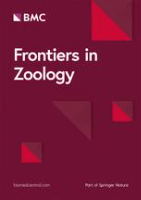
Frontiers in Zoology
Advancing zoological research for a sustainable future.Frontiers in Zoology is a premier, open-access journal published by BMC that has been a cornerstone of zoological research since its inception in 2004. With a commitment to advancing the field, this journal covers a broad spectrum of topics within Animal Science and Zoology, as well as Ecology, Evolution, Behavior, and Systematics. Recognized for its quality, it holds a distinguished Q1 ranking in both of these categories and ranks within the top percentiles in Scopus, with 87th and 78th percentiles, respectively. Based in the United Kingdom, it provides researchers, professionals, and students with innovative studies and findings that encourage interdisciplinary collaboration and exploration. The journal is dedicated to facilitating the open exchange of scientific knowledge, making it an essential resource for those seeking to stay at the forefront of zoological and ecological sciences.

Perspectives on Behavior Science
Unraveling the Mysteries of Mind and BehaviorPerspectives on Behavior Science, published by SPRINGER INT PUBL AG, serves as a pivotal platform in the field of psychology, encompassing comprehensive research and insights in Clinical Psychology, Social Psychology, and Experimental and Cognitive Psychology. Established in 2018, the journal is recognized for its rigorous peer-reviewed articles that contribute significantly to scholarly discourse, evidenced by its Q2 ranking in high-impact categories in 2023. With an ISSN of 2520-8969 and an E-ISSN of 2520-8977, it actively engages a global audience of researchers and practitioners keen on behavioral science advancements. The journal's commitment to open access ensures wide accessibility, enhancing the dissemination of knowledge. Each volume continues to illuminate the intersection of theory and practice, making it an essential resource for academic professionals and students pursuing profound understanding in the complexities of human behavior.